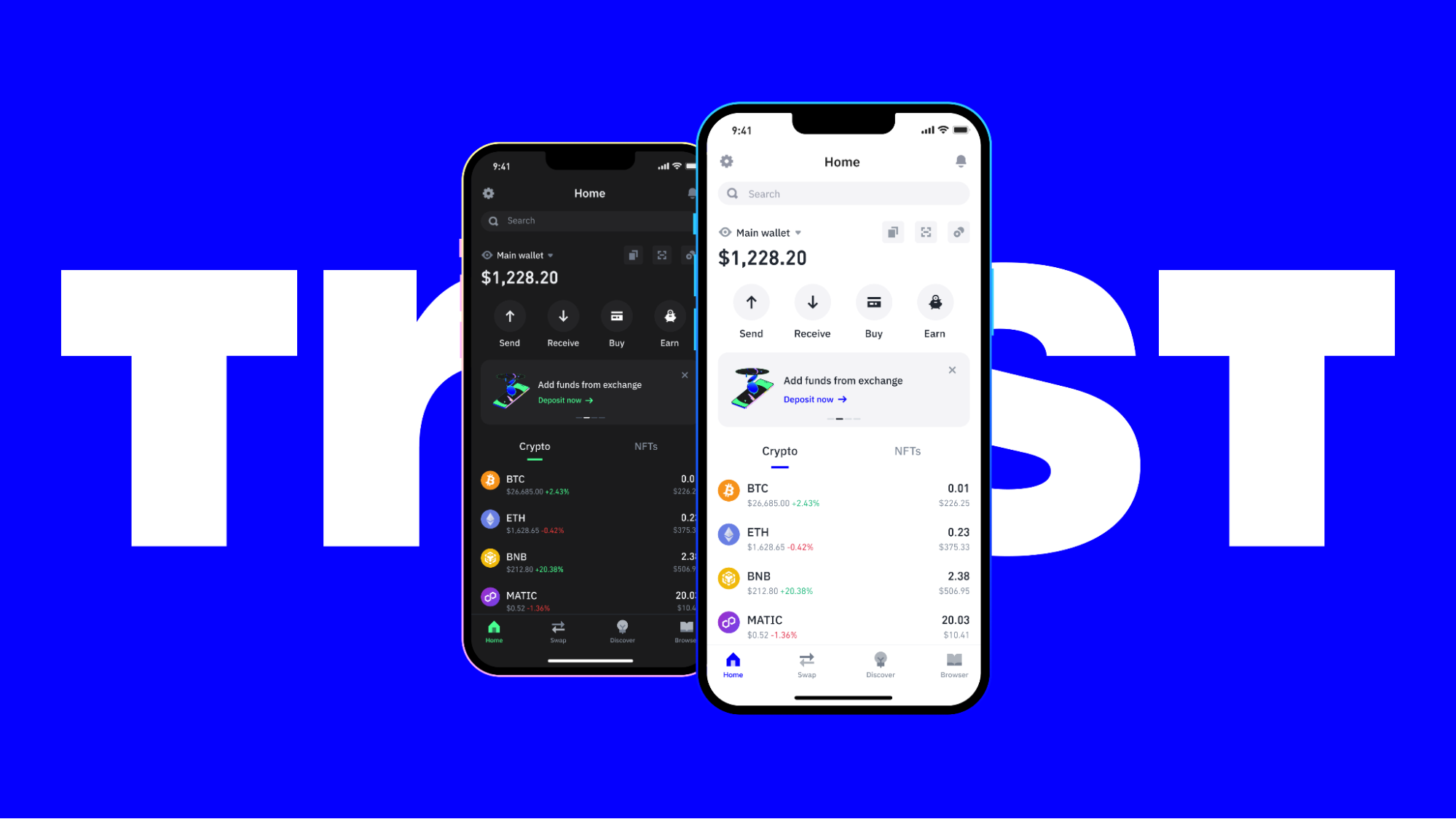In the world of cryptocurrency, securing digital assets is of paramount importance. With the rapid growth of decentralized finance (DeFi) and blockchain technology, users require safe and efficient solutions for managing their crypto holdings. Trust Wallet has emerged as one of the leading mobile wallet applications, providing a secure, user-friendly interface for managing digital assets. In this article, we will explore what trustwallet is, its features, and why it has become a popular choice for cryptocurrency enthusiasts.
What is Trust Wallet?
Trust Wallet is a decentralized, multi-currency mobile wallet that allows users to store and manage a wide range of digital assets. It was originally developed by Viktor Radchenko in 2017, and in 2018, the wallet was acquired by Binance, one of the largest cryptocurrency exchanges in the world. Despite the acquisition, Trust Wallet remains a non-custodial wallet, meaning users retain full control over their private keys and funds.
The wallet supports a variety of cryptocurrencies, including Bitcoin (BTC), Ethereum (ETH), Binance Coin (BNB), and many others, making it a versatile solution for users holding diverse crypto assets.
Key Features of Trust Wallet
- Multi-Currency Support
Trust Wallet supports thousands of digital currencies, including ERC-20, BEP-2, and BEP-20 tokens. This broad range of compatibility ensures that users can store virtually any cryptocurrency in one place, regardless of which blockchain it belongs to. - Non-Custodial Wallet
Trust Wallet is non-custodial, meaning that users retain full control over their private keys and funds. This is a significant advantage for those who want to avoid relying on centralized exchanges or third-party custodians for securing their assets. With Trust Wallet, the user is the sole custodian of their cryptocurrency. - Decentralized Exchange (DEX) Access
Trust Wallet provides users with access to decentralized exchanges (DEXs), such as PancakeSwap and Uniswap, allowing for peer-to-peer trading directly from the wallet. This feature is essential for users who prefer to trade without intermediaries, enhancing privacy and security. - Built-In Web3 Browser
Trust Wallet includes a Web3 browser that enables users to interact with decentralized applications (dApps) directly from the wallet. This browser allows users to explore DeFi protocols, NFT platforms, and other blockchain-based services without needing to switch to a separate app or website. - Staking
Users can stake certain cryptocurrencies directly within Trust Wallet, earning rewards for participating in the network’s proof-of-stake (PoS) consensus mechanism. Popular coins that can be staked include Binance Coin (BNB), Cosmos (ATOM), and Tezos (XTZ), providing users with an opportunity to generate passive income. - Security and Privacy
Trust Wallet places a strong emphasis on security. The wallet employs encryption to protect private keys, and users are given a 12-word recovery phrase to restore their wallet in case of device loss. Additionally, Trust Wallet does not store any personal information or transaction data on its servers, ensuring privacy for its users. - User-Friendly Interface
One of the standout features of Trust Wallet is its simplicity and ease of use. The mobile app is designed to be intuitive, even for users who are new to cryptocurrency. The interface makes it easy to send, receive, and manage assets, as well as access other features like staking and DeFi protocols.
How to Set Up Trust Wallet
Setting up Trust Wallet is a straightforward process that can be completed in a few simple steps:
- Download the App
The Trust Wallet app is available for both iOS and Android devices. Users can download it from the Apple App Store or Google Play Store, depending on their device. - Create a New Wallet or Import an Existing One
Upon opening the app, users will be given the option to create a new wallet or import an existing one. If creating a new wallet, Trust Wallet will generate a 12-word recovery phrase, which must be written down and kept in a secure place. This phrase is essential for recovering the wallet in the event of a lost device. - Backup the Recovery Phrase
It is crucial to store the recovery phrase in a safe location, as it is the only way to restore the wallet if the device is lost or stolen. Trust Wallet emphasizes that no one, including the app’s developers, can recover the wallet without this phrase. - Add Cryptocurrencies
Once the wallet is set up, users can add their desired cryptocurrencies by clicking on the “+” button and selecting from a list of supported assets. Users can also receive tokens by sharing their wallet address or scanning a QR code. - Start Using Trust Wallet
After adding assets, users can send, receive, and trade cryptocurrencies directly from the app. They can also access DeFi platforms and stake supported tokens to earn rewards.
Advantages of Trust Wallet
- Decentralization
As a non-custodial wallet, Trust Wallet allows users to retain full control over their private keys, offering greater security compared to custodial wallets, where the exchange holds the keys. - Wide Range of Supported Assets
With support for thousands of cryptocurrencies and tokens, Trust Wallet caters to a diverse user base and provides flexibility for managing various types of digital assets. - Integration with DeFi
Trust Wallet seamlessly integrates with decentralized applications and DeFi protocols, making it easier for users to participate in lending, borrowing, and yield farming. - Security Features
The app offers robust security features, including private key encryption, a 12-word backup phrase, and the ability to secure the app with biometric authentication or a passcode. - No Fees for Sending/Receiving Funds
While Trust Wallet does not charge any fees for sending or receiving crypto, users will still need to pay transaction fees to the respective blockchain network.
